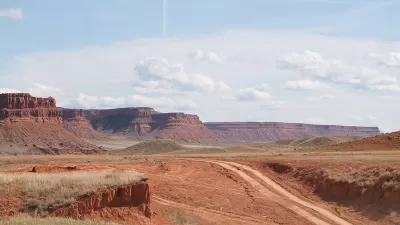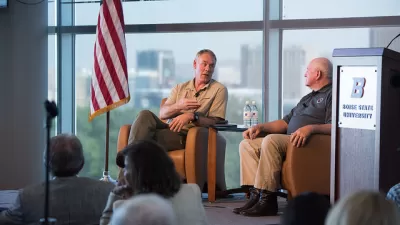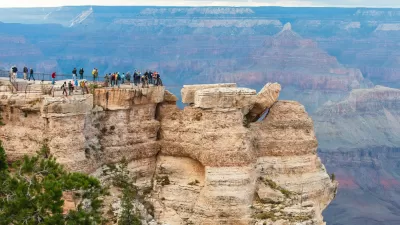After recent resignations, there's a new part of the job description: "maintain a sort of firewall between their scientific work and any political agendas."
In a recent hearing on the nomination of geologist and former astronaut James Reilly to lead the United States Geological Survey, congress members "emphasized that Reilly would have to protect the scientists in his agency and maintain a sort of firewall between their scientific work and any political agendas," reports Francie Diep at Pacific Standard.
It was an unusual line of questioning that stems from the resignation last month of two USGS scientists after they were asked to provide data from a study to leaders of the Department of the Interior (which houses the USGS) in advanced of its public release.
Diep spoke to leaders of the scientific community.
"'I would not say they have ever been asked to be some sort of buffer or barrier between the [Department of the Interior] and scientists ever before,' says Lexi Shultz, vice president of public affairs for the American Geophysical Union, a professional group for Earth scientists. The union estimates that a bit less than 600 of its members work for the USGS. 'That is not something that we have seen,' Shultz says."
Though, typically, it has taken President Trump an exceptionally long time to fill the top position at the USGS, Reilly's nomination attracted comparably little controversy, most likely because he is one of the administration's few nominees to lead a scientific agency who actually has an advanced degree in science.
If Reilly is approved, he will report Department of the Interior Secretary Ryan Zinke, who is more of "a typical Trump appointee," as Elizabeth Kolbert wrote, in that "[n]early all Trump’s Cabinet members have shown disdain for the regulatory processes they’re charged with supervising."
Still Reilly's response to the committee's questions are "hard to read," Diep writes; interpretations have varied from "USGS nominee vows to insulate science from political pressure" to "USGS nominee inclined to show data to Interior bosses."
FULL STORY: THE USGS DIRECTOR'S NEWEST JOB DESCRIPTION: MAINTAINING 'SCIENTIFIC INTEGRITY'

Alabama: Trump Terminates Settlements for Black Communities Harmed By Raw Sewage
Trump deemed the landmark civil rights agreement “illegal DEI and environmental justice policy.”

Planetizen Federal Action Tracker
A weekly monitor of how Trump’s orders and actions are impacting planners and planning in America.

Why Should We Subsidize Public Transportation?
Many public transit agencies face financial stress due to rising costs, declining fare revenue, and declining subsidies. Transit advocates must provide a strong business case for increasing public transit funding.

Understanding Road Diets
An explainer from Momentum highlights the advantages of reducing vehicle lanes in favor of more bike, transit, and pedestrian infrastructure.

New California Law Regulates Warehouse Pollution
A new law tightens building and emissions regulations for large distribution warehouses to mitigate air pollution and traffic in surrounding communities.

Phoenix Announces Opening Date for Light Rail Extension
The South Central extension will connect South Phoenix to downtown and other major hubs starting on June 7.
Urban Design for Planners 1: Software Tools
This six-course series explores essential urban design concepts using open source software and equips planners with the tools they need to participate fully in the urban design process.
Planning for Universal Design
Learn the tools for implementing Universal Design in planning regulations.
Caltrans
Smith Gee Studio
Institute for Housing and Urban Development Studies (IHS)
City of Grandview
Harvard GSD Executive Education
Toledo-Lucas County Plan Commissions
Salt Lake City
NYU Wagner Graduate School of Public Service





























